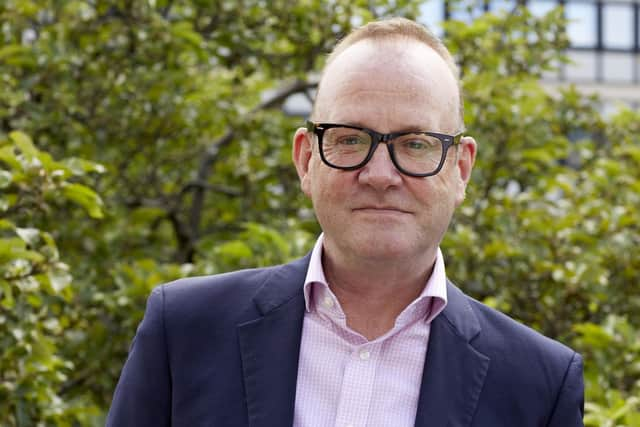Why new ideas and inventions are essential to ensure we can all enjoy healthier lives - Rory Duncan
The research demonstrates a fundamental unfairness, that economic and social inequalities lead to people from less affluent areas being more likely to be living with long-term health conditions.
The gap in healthy life expectancy between the most and least affluent parts of our region is stark. Someone from one of the wealthiest parts of Sheffield could have a healthy life expectancy of around 20 years more than someone from some of our most deprived neighbourhoods.
Advertisement
Hide AdAdvertisement
Hide AdNot only is this morally indefensible, but it is a major weakness of our economy, which needs a fit and healthy workforce to thrive.


Some of the factors driving this gap can be avoided through better quality of education, jobs, housing and environment. Research and innovation are key enablers that can deliver this, helping to improve health outcomes for people living in our communities across Yorkshire.
That’s why we set out our vision for a Health Innovation Campus at Sheffield Hallam, with its nucleus at the dynamic Sheffield Olympic Legacy Park.
This vision spans the entire university, working in partnership across our region and beyond to change how we think about lifelong challenges from early years to education, skills development, world-class research, business, and employment growth.
Advertisement
Hide AdAdvertisement
Hide AdThe University already has two world-leading research centres at the heart of the Sheffield Olympic Legacy Park- the only legacy park outside an Olympic host city in the world.
Our National Centre of Excellence for Food Engineering (NCEFE) and our Advanced Wellbeing Research Centre (AWRC) are both based there and are contributing to improving health and wellbeing at a regional, national, and global level.
Since opening in 2020, the AWRC has focused on improving health and wellbeing through innovations that help people move - a simple and powerful ethos.
Research carried out by experts at the AWRC, particularly with disadvantaged communities, confirms that the most important factor to people is good quality of life. How long people live is obviously an important factor too, but being able to remain fit, healthy, and independent is vital.
Advertisement
Hide AdAdvertisement
Hide AdIn the last few months, researchers based at the AWRC were awarded more than £3m in funding for two separate but connected research projects looking at the impacts of childhood obesity. These projects have huge potential to make a real difference by providing new knowledge to influence how we can best provide support.
More broadly, the University is using support from external funding to recruit 40 new professors to the region through a ‘Transforming Lives’ professorial programme. This is an ambitious initiative to attract the very best in the field to our region, and child health is a priority for us.
Alongside specialists and partner organisations from across our region, this growing expert group will lead new research that will help children and young people living with obesity to lead healthier, happier lives.
But we must also address the wider contributing factors of health inequalities if we are to truly level up our communities.
Advertisement
Hide AdAdvertisement
Hide AdPoor health caused by lack of access to basic needs adds ever-increasing pressure on the National Health Service, straining its resources and finances. New ideas and inventions are essential to ensure that we can all enjoy healthy lives and reduce the burden on our NHS.
This is not limited to South Yorkshire, or the UK – other nations are also interested in our innovations to address similar challenges they face. In January we hosted colleagues from South Korea at the Sheffield Olympic Legacy Park who were interested in replicating our model.
Universities across the country have made important contributions to address these challenges, engaging with our communities and applying new research expertise across design, exercise, technology, food engineering and artificial intelligence, with rapidly growing momentum.
We are at the forefront of research and innovation to address health inequalities in South Yorkshire and beyond. Whilst the challenge is stark, there is good reason to be optimistic. I particularly welcome our elected mayor, Oliver Coppard, placing tackling health inequalities at the forefront of his agenda – rightly highlighting how it is perhaps our region’s greatest barrier to economic growth.
Advertisement
Hide AdAdvertisement
Hide AdWith support from government and industry the health of our region can – and must – be more equal and equitable for all.
Professor Rory Duncan is Pro Vice-Chancellor for Research and Innovation at Sheffield Hallam University.
Comment Guidelines
National World encourages reader discussion on our stories. User feedback, insights and back-and-forth exchanges add a rich layer of context to reporting. Please review our Community Guidelines before commenting.